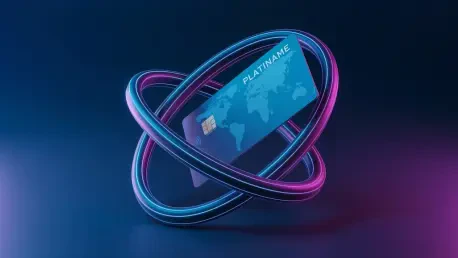What happens when a single tap on a phone can verify your identity, secure a transaction, and unlock personalized banking perks across an entire continent, transforming the way millions interact with financial systems? This isn’t a distant dream but a reality unfolding in Romania, where Banca Transilvania has taken a monumental step by pioneering the first EU Digital Identity Wallet (EUDIW) for payments. As digital transformation sweeps through Europe, this initiative stands as a beacon of innovation, promising to redefine financial interactions. The journey of this groundbreaking project offers a glimpse into a future where security, convenience, and inclusivity converge.
The significance of this development cannot be overstated. With the European Union’s ambitious target to equip 80 percent of its citizens with state-issued digital ID wallets by 2030, Romania’s role as an early adopter through Banca Transilvania’s pilot marks a critical milestone. This isn’t just about meeting regulatory deadlines; it’s about addressing real challenges like cross-border inefficiencies and unequal access to banking services. Driven by the eIDAS 2 regulation, which mandates all EU banks to integrate EUDIW for customer verification by 2027, this project showcases how local innovation can propel a continent-wide vision of a unified digital ecosystem.
A Bold Step into the Digital Age
Banca Transilvania, Romania’s leading financial institution, has emerged as a trailblazer in the digital identity space. Partnering with BPC, a global leader in payment solutions, the bank launched a pilot program that successfully processed its first real-money transaction—a ferry ticket purchase—using a virtual card linked to digital credentials stored in the EUDIW. This achievement isn’t merely technical; it symbolizes a shift toward a seamless, secure way of handling everyday financial interactions.
The impact extends far beyond a single transaction. By integrating the EUDIW, the bank addresses long-standing pain points in banking, such as cumbersome verification processes and limited access for underserved populations. With the EU pushing for interoperability across member states, this pilot serves as a testing ground for how digital identities can unify diverse systems, ensuring that a Romanian citizen can access services in Germany or Spain with the same ease as at home.
The EU’s Grand Vision and Romania’s Place in It
At the heart of this initiative lies the European Union’s goal to revolutionize citizen interactions with public and private services. The eIDAS 2 regulation, set to enforce EUDIW adoption by 2027, is a cornerstone of this strategy, aiming to eliminate friction in cross-border transactions and enhance security through standardized digital credentials. The EU’s target of reaching 80 percent adoption by 2030 underscores the urgency and scale of this transformation.
Romania, often seen as an emerging player in Europe’s tech landscape, has seized the opportunity to lead through Banca Transilvania’s efforts. This positions the country as a model for others, proving that innovation can thrive even in markets not traditionally associated with cutting-edge technology. The pilot’s success highlights how localized efforts contribute to a broader framework of connectivity, setting a precedent for other nations to follow in harmonizing digital identities across borders.
Behind the Tech: Crafting a Seamless Experience
The technical backbone of this project reveals a meticulous collaboration between Banca Transilvania and BPC. By upgrading the bank’s SmartVista ACS and payment APIs, the partnership enabled EUDIW authentication for card transactions, supporting both cross-device and same-device verification. This ensures that users can confirm their identity and complete purchases effortlessly, whether using a smartphone or a secondary device.
What sets this apart is its practical application. The pilot’s landmark transaction demonstrated the system’s real-world potential, paving the way for broader adoption. Additionally, the wallet’s capabilities extend beyond basic authentication; it allows banks to access verified personal data—such as income or residency—to tailor financial products, from subsidies to discounts, enhancing the user experience with personalized offerings.
Voices That Shape the Future
Leadership perspectives shed light on the profound implications of this initiative. Oana Ilaș, Deputy CEO of Retail Banking at Banca Transilvania, emphasized the cultural resonance of the project, noting, “This historic endeavor strengthens European identity by fostering an ecosystem of connectivity and a shared sense of belonging to a larger, aspirational community.” Her words reflect a vision that transcends technology, aiming for unity through digital means.
Echoing this sentiment, Vasily Volynsky, Global Head of Accounts at BPC, highlighted the pioneering spirit of the collaboration: “Banca Transilvania’s role as the first issuer bank in Romania to adopt the EUDIW marks a turning point for the bank and Europe’s evolving payments landscape.” These insights from key stakeholders underscore a collective belief in the wallet’s capacity to merge innovation with societal impact, offering a human lens on a tech-driven transformation.
Empowering Users: What the Digital Wallet Means for You
For everyday consumers in Romania and across Europe, the EUDIW represents a game-changer in navigating financial services. Transactions become simpler, with authentication streamlined to a quick tap, ensuring both speed and robust security across devices. This eliminates the hassle of remembering multiple passwords or carrying physical IDs for verification.
Beyond ease, the wallet promises efficiency in onboarding processes. Banks can now use verified digital credentials to speed up Know Your Customer (KYC) checks, cutting down on paperwork for opening accounts or applying for loans. Moreover, users stand to benefit from customized financial offers based on verified data, making banking not just accessible but also relevant to individual circumstances, whether it’s a discount on a loan or a subsidy for specific needs.
Looking back, Banca Transilvania’s pilot of the EU Digital Identity Wallet stood as a defining moment in Romania’s journey toward digital integration. Reflecting on its impact, the initiative not only met regulatory demands but also reshaped how financial interactions were perceived, blending security with personalization. For the future, consumers and businesses alike were encouraged to stay engaged with digital tools, exploring how such innovations could unlock new opportunities. As Europe continued to build on this foundation, the focus shifted to scaling these solutions, ensuring that every citizen could step confidently into a connected, inclusive digital era.









